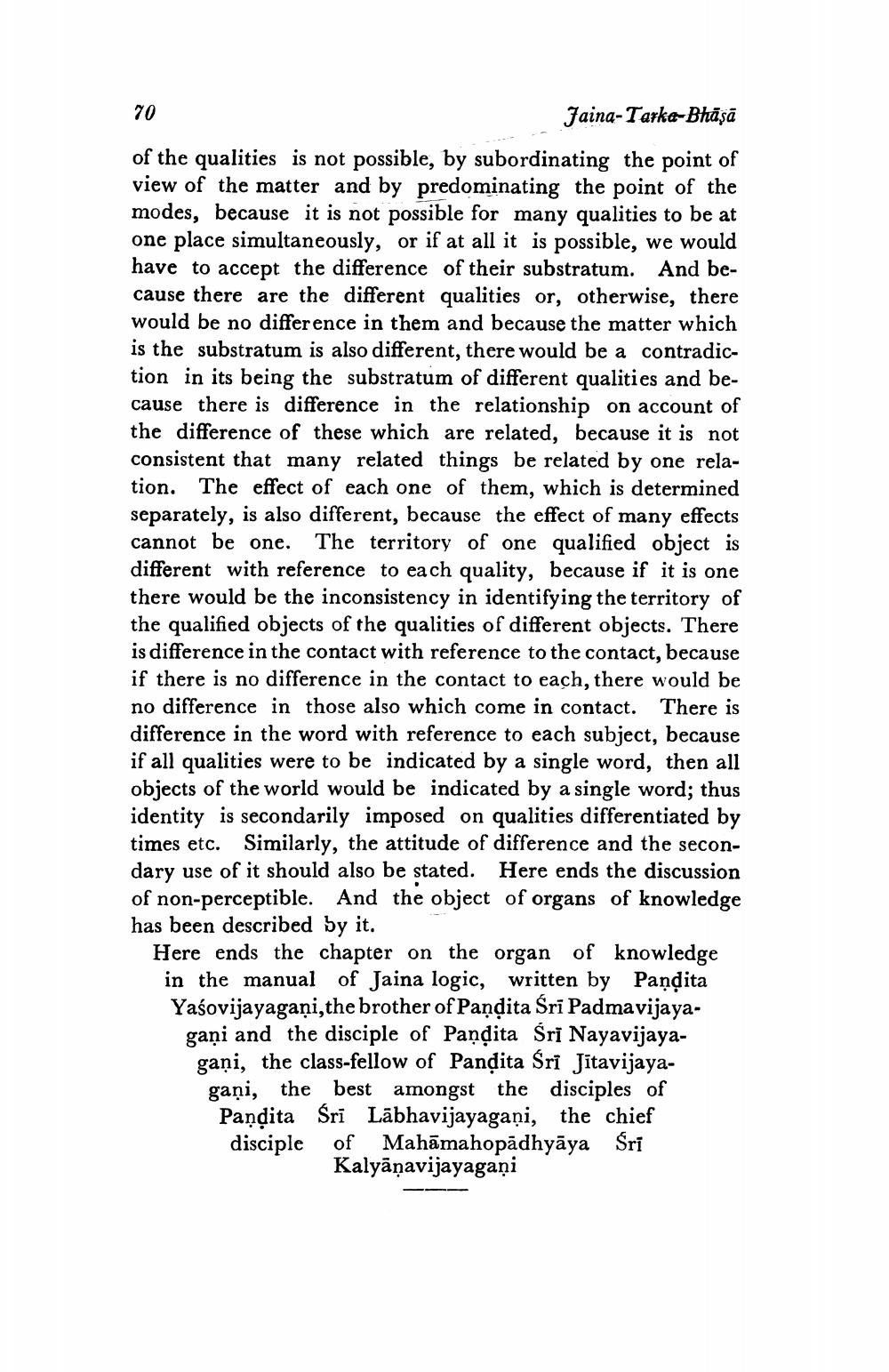________________
70
Jaina-Tarka-Bhasa of the qualities is not possible, by subordinating the point of view of the matter and by predominating the point of the modes, because it is not possible for many qualities to be at one place simultaneously, or if at all it is possible, we would have to accept the difference of their substratum. And because there are the different qualities or otherwise, there would be no difference in them and because the matter which is the substratum is also different, there would be a contradiction in its being the substratum of different qualities and because there is difference in the relationship on account of the difference of these which are related, because it is not consistent that many related things be related by one relation. The effect of each one of them, which is determined separately, is also different, because the effect of many effects cannot be one. The territory of one qualified object is different with reference to each quality, because if it is one there would be the inconsistency in identifying the territory of the qualified objects of the qualities of different objects. There is difference in the contact with reference to the contact, because if there is no difference in the contact to each, there would be no difference in those also which come in contact. There is difference in the word with reference to each subject, because if all qualities were to be indicated by a single word, then all objects of the world would be indicated by a single word; thus identity is secondarily imposed on qualities differentiated by times etc. Similarly, the attitude of difference and the secondary use of it should also be stated. Here ends the discussion of non-perceptible. And the object of organs of knowledge has been described by it. Here ends the chapter on the organ of knowledge in the manual of Jaina logic, written by Pandita Yasovijayagani, the brother of Pandita Śrī Padmavijayagaại and the disciple of Pandita Šri Nayavijayagani, the class-fellow of Pandita Sri Jitavijayagaņi, the best amongst the disciples of Paņdita Śrī Lābhavijayagaại, the chief disciple of Mahāmahopadhyāya Sri
Kalyāņavijayagani




